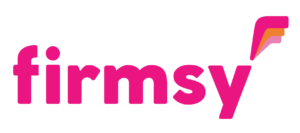Before Automio, I launched NZ’s first online legal service, Legal Beagle, in 2011. We used this online brand to win around 4,000 new clients in just a few years for our firm through digital marketing. This was a separate brand to my law firm Dennis King Law. I jumped into Legal Beagle without really considering the impact operating two separate brands would have on my business.
I’ve reflected on the pros and cons of operating two separate brands for legal services – here they are:
Pros of a separate brand for online legal services
- Fresh brand: There are lots of law firms around with stale, old-fashioned brands that aren’t suited to a modern online approach. So launching a separate, new brand will help you bring your firm into the modern day. To appeal to a modern client who likes to do everything online, you need fresh, modern branding.
- Specific niche and ideal client: You need to know exactly who your target client is for your online brand so that you can cost-effectively get in front of them so they become clients. If your ideal client for your online brand is different to your ideal client for your law firm, then having a separate brand that appeals to that ideal client is key.
- Targeted marketing: Having a separate online brand will help drive your ideal clients to your website. You’ll be able to use messaging throughout your website, social media and digital marketing that is specific to your online brand and ideal client so there can be no confusion around what your online brand offers or who you serve.
Cons of a separate brand for online legal services
- Two of everything: OK, so you don’t need two of everything, but when your business has a separate online brand it is a lot like running two separate businesses. You will likely need two of the following:
- Two websites – one for your law firm and one for the separate online brand.
- Two blogs.
- A separate part of your accounts for the online brand (we ran Legal Beagle as a “branch” in our accounts, and did our best to apportion expenses between the two).
- Two letterheads.
- Two email addresses.
- Two newsletters.
- Two business plans.
- Two marketing plans.
- Two logos and sets of digital assets.
- Two sets of marketing collateral (pop up banners, swag etc).
- Two Facebook, LinkedIn, Twitter and Instagram accounts.
- Two sets of educational resources for clients.
- You’ll need to make it clear to your staff who does want. Some staff may work for one brand and not the other, and other staff may split their time working for both brands.
- Double the effort: Having two of everything means double the effort. Like writing two business plans, running two separate marketing campaigns and updating two different Facebook accounts. Which is why it is important to make sure your staff understand their role under each brand so that the work gets done and tasks don’t slip between the cracks. To get your new online brand off the ground and make it successful, you will need someone who is super passionate about it driving it.
- Extra costs: While a lot of the operating costs of your firm will be shared and split between the two brands (like your lease for example), having two of everything means additional costs. Like paying for an extra website to be built and maintained, getting an additional logo and branding done, hiring a copywriter to write articles for not one but two blogs, hiring additional staff for the new brand, etc.
Did I do the right thing?
I’ve asked myself if I could go back in time would I launch Legal Beagle as a separate brand (like I did), or would I have launched our online legal services under the Dennis King Law brand. I believe I did the right thing by launching it as a separate brand. Here’s why:
- We were targeting a completely new and different ideal client – Dennis King Law did commercial law and civil litigation for medium-sized businesses, and Legal Beagle targeted tech-savvy millennials for basic legal matters like conveyancing, wills and trusts.
- The more corporate looking branding of Dennis King Law wouldn’t have been appealing to our Legal Beagle clients.
- Our colloquial messaging we used for Legal Beagle wasn’t really appropriate for our Dennis King Law clients.
- Dennis King Law was more Taranaki based, where Legal Beagle was NZ wide.
So what should you do?
If you want to use your new online legal services to serve your existing clients and get more clients like the ones you’ve already got, then you’re probably better off doing it under your existing brand. You can create a separate area of your website to offer and promote your online legal services. Just like Kinny Legal and Beach Law have done.
If you want to target a specific type of client with your new online legal services, then launching a separate brand should be given serious consideration. Just like Michael Heron QC has done with CODR.
Whatever you decide to do, I urge you to give it the time and attention it deserves by putting together a business plan and marketing plan for your new online legal services so you know who will do what and how you will make it successful.
Have you downloaded The Law Firm Automation Playbook yet? In this free guide you’ll discover 5 easy ways to automate your repetitive legal work so you can unlock more billable hours, make fixed fees more profitable, reduce write-offs and win more new clients.

